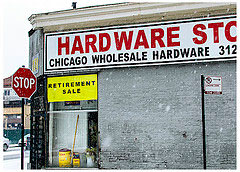 A "going concern" is an Australian Tax Office ("ATO") invention that allows the sale of a business to be a GST-free transaction.
A "going concern" is an Australian Tax Office ("ATO") invention that allows the sale of a business to be a GST-free transaction.
It is always highly desirable to both buyer and seller in a sale of business – it means no GST, and it gives certainty to both parties as to what they are paying and what they are receiving.
However there are many rules and requirements for a sale to be a GST free going concern that need to be considered before you enter into a sale contract.
GST is often the last thing on your mind when you are negotiating the sale or purchase of a business. Whether the price you have negotiated is GST inclusive or exclusive can be easily forgotten in the excitement, or both parties will simply assume that business sales are GST-free without considering all of the elements of what is a "going concern".
Some of the essential aspects of a going concern sale are:
- Both seller and buyer must be registered for GST.
- Your sale contract must expressly record that the sale is a going concern.
- The seller must sell everything that is necessary for the continued operation of the business. Any exclusion can mean that it is not a going concern.
- Selling everything means you must provide the premises from which you operate (unless you are a mobile business or operate from your home, but there are strict ATO rules on this category of business). If the business premises is leased, there must be an assignment of lease OR surrender of the existing lease then a new lease to the buyer. In limited circumstances, a new but similar premises can be found.
- It may come undone where the seller has different entities owning different parts of the business – a seller should investigate their ownership structure with their lawyer well in advance of a sale.
- The business must trade up until the settlement date. Any business closure in the lead up to the sale will nullify going concern – so beware if you plan to close to paint or renovate on handover.
If you are able to meet all of the above requirements, your sale should be a going concern, and there will be no GST payable.
Some handy rules to remember:
Always negotiate the price as GST EXCLUSIVE so that both parties know where they stand. Then if GST is payable, the seller still gets the agreed price. A contract that is silent will be GST inclusive, which will always be bad for a seller if there has been no consideration of GST.
And for a seller, there should always be a clause in your contract stating that if the tax office deems your sale NOT to be a going concern, then you can call on the buyer at any time to pay the GST.
It is not always possible to meet the above requirements – you might not want to sell all of your business assets, or the existing structure of your business may not allow it. It is easy to forget that GST in a sale between two registered entities is a tax neutral outcome, because the purchaser pays 10% GST and gets it back from the ATO and the seller collects the additional 10% with the purchase price and hands it over to the ATO. Each ends up in (virtually) the same position PROVIDED you correctly negotiate the price on a GST exclusive basis in the first place.
For the Buyer, however, it is often a question of cashflow. It is preferable to avoid coming up with the extra money which you must then wait to recoup on your next business activity statement. Sometimes a buyer can't fund the additional money at all as they are already borrowing to their limit for purchase price and other business start up activities. So if you are concerned about having a "going concern" then you need to seek advice early in your negotiations.
Cassandra Emmett
Cassandra Emmett is Practice Leader of Property & Commercial at Chamberlains Law Firm. She advises business owners in relation to property law, contracts and agreements, Intellectual Property, Corporations Law, Franchising and Licences. Visit www.chamberlains.com.au for more information.
Photo: "Hardware Store - Retirement Sale" by Seth Anderson


